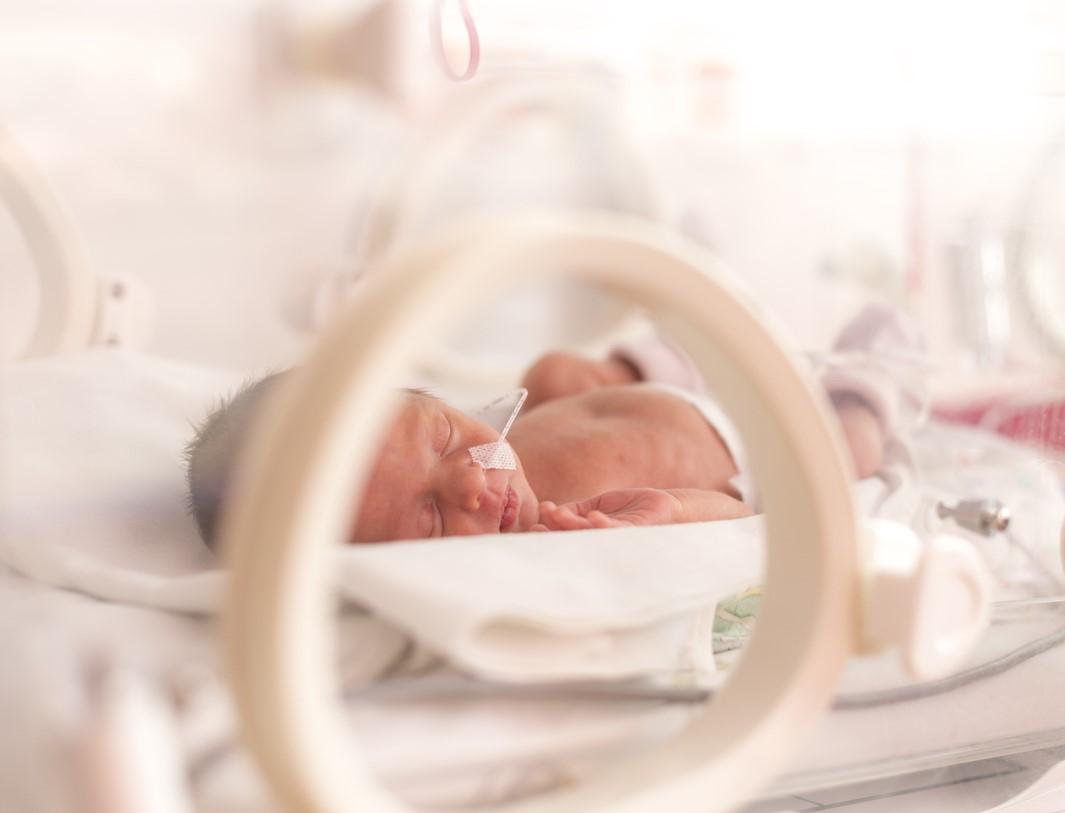A new metagenomic study of babies born prematurely indicate the bacterial strains that can cause dangerous bloodstream infections in those infants may originate in the gut, and antibiotic use may promote the growth of those pathogens.
The authors of the study, published yesterday in Science Translational Medicine, say the findings are another indication of the need for more careful use of antibiotics in preterm infants.
Early antibiotics can shape the gut microbiome
In the first part of the study, a team led by researchers with the Washington University School of Medicine in St. Louis (WUSTL) analyzed 550 previously published fecal metagenomes from 115 newborns treated in neonatal intensive care units (NICUs) at three Midwestern hospitals. They wanted to see whether antibiotics, which are frequently given to preterm infants because of their vulnerability to a range of bacterial infections, may increase an abundance of the bacteria in the gut that can cause late-onset sepsis (suspected or confirmed infection within the first 3 days of life).
Prior work by the team had established that prolonged antibiotic use in preterm infants was associated with reduced diversity of gut bacteria within the first 3 to 4 months of life—when the gut microbiome is rapidly developing—compared with healthy infants, but also with increased abundance of potentially dangerous, antibiotic-resistant bacterial strains.
"This is a vulnerable population," senior author Gautam Dantas, PhD, a professor of Laboratory and Genomic Medicine at WUSTL, said in a university press release. "These early exposures to bacteria shape the gut microbiome in ways that will probably stay with these babies for the rest of their lives."
Their analysis of the 550 fecal metagenomes found that recent exposure to ampicillin, gentamicin, or vancomycin was associated with increased abundance of Enterobacteriaeceae (such as Escherichia coli and Klebsiella spp.) and Enterococcaceae (Enterococcus spp.) in the infant gut. These families are two of the most common causes of bloodstream infections (BSIs) in NICUs worldwide, along with Staphylococcus aureus.
For the second part of the study, the researchers aimed to determine if antibiotic use may be a factor associated with BSIs in preterm infants, and whether these bacterial species within the infant gut, which are also commonly found on NICU surfaces, may be a source of such infections.
From this study, as well as in our lab's past studies, it's clear that we need to be better stewards of how antimicrobials are given.
To do that, they conducted shotgun metagenomic sequencing—a process that involves taking the DNA out of all the bacteria in a sample and breaking it up to evaluate bacterial diversity and abundance—on 462 stool samples from 19 preterm infants with BSIs (cases) and 37 infants without BSIs (controls). They also performed whole-genome sequencing on BSI isolates from the 19 cases.
This revealed that infants with BSI caused by Enterobacteriaceae species were more likely than infants with BSI caused by other organisms to have been exposed to ampicillin, gentamicin, or vancomycin in the 10 days before infection. In addition, the analysis found that, compared with the control infants, the gut microbiomes of infants with BSIs had a higher abundance of the BSI-causing species.
In several cases, the analysis found in the stool samples of the infants with BSIs a strain of the bacteria that was nearly identical to the strain that caused the BSI. In 11 of 19 (58%) of the infants with BSIs, the researchers demonstrated that the gut microbiome harbored a nearly identical BSI isolate a week before the infection occurred; in 15 of 19 cases (79%), they found a similar isolate in the gut after the infection had been diagnosed.
"These data demonstrate that, for most cases, the same strain causing BSI is present in the gut microbiome, increases in abundance until BSI onset, and is often not completely cleared during systemic antimicrobial therapy," the researchers wrote.
Antibiotic stewardship needed in NICUs
Dantas and his colleagues say that while they cannot rule out the possibility that the pathogen that caused the BSI in the 19 cases originated elsewhere, they believe the increased abundance of BSI-causing bacteria in the gut microbiomes of the cases compared with the controls suggests the gut is a reservoir for these pathogens in preterm infants. They believe gut microbiome profiling could be used to determine the risk of late-onset sepsis in preterm infants in NICUs.
Dantas also says the findings further highlight the need for more antibiotic stewardship in NICUs.
"From this study, as well as in our lab's past studies, it's clear that we need to be better stewards of how antimicrobials are given," he said. "Antimicrobials are critical; we are going to need them to treat infections, but we need to carefully weigh whether and when to use antimicrobials in specific situations."
























